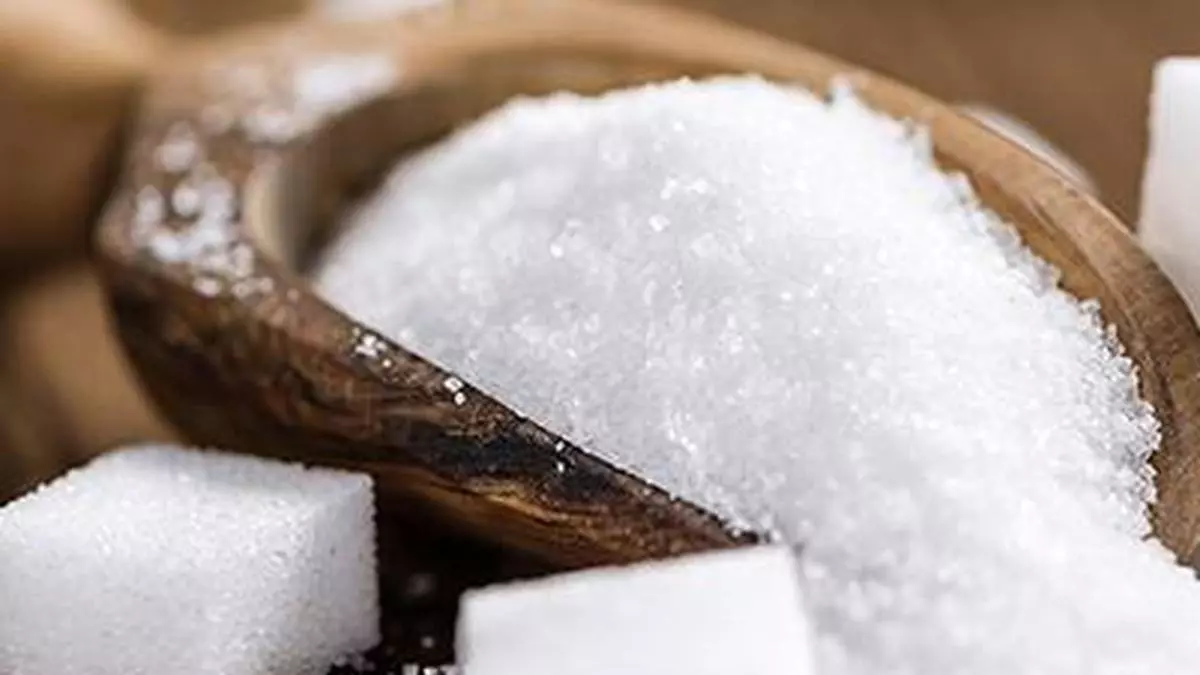Amit Shah asks cooperative sugar mills to target 25% rise in turnover in 2 years
Cooperation Minister Amit Shah on Saturday suggested sugar mills in the cooperative sector to fix a target of raising their turnover by 25 per cent in two years and also take initiatives in group to set up sugar mills in other states so that the profit is shared with more farmers.
Addressing the “Sugar Conclave and National Efficiency Awards Ceremony”, organised by National Federation of Cooperative Sugar Factories (NFCSF) in New Delhi, Shah also asked the cooperative leaders to explore alternatives to sugarcane for ethanol production, pushing for a multidimensional approach to biofuel manufacturing.
“The target set for ethanol blending of 20 per cent is 2030, but we will achieve the target in 2025-26,” he said and highlighted how the ethanol blending programme (EBP) has helped reduce the country’s crude oil import bill.
- Also read: 13 high yielding fruit and vegetable varieties developed by IIHR to be released by PM Modi tomorrow
The minister said that there is a need for sugar mills to adopt a forward-looking approach. As ethanol can be made from multiple sources, the push for diversification should be seen the context of India’s resolve to reduce dependence on fossil fuels and promote sustainable energy alternatives.
Praising the efforts of NFCSF, he asked it to emulate Mother Dairy to expand the footprints of cooperative sugar mills in other states where there is no presence now. He asked NCSF leadership to prepare a roadmap for next 10 years with the objective of transferring the entire profit to the farmer-members.
“In this fiscal, identify 2 or 3 states and try to set up one cooperative sugar mill each in 3 districts,” he suggested and assured NFCSF full support from the cooperation ministry. Shah also asked cooperative mills to to shed their “orthodox” approach and set a target of raising the turnover by 25 per cent in two years as stagnancy should not creep in.
The minister also asked them to think about alternative business in the six months of off season when mills close factories after end of sugarcane crushing season.
Commenting on EBP, he said currently about 1,000 crore litres of ethanol is required for blending to achieve 20 per cent target, but there is also a possibility of exporting another 1000 crore litres.
He emphasised the need for sugar mills to modernise and adopt new technologies, citing potential export opportunities once the Global Biofuels Alliance is established. Shah also advised NFCSF to hire professionals to guide loss-making cooperatives.
NFCSF President Harshavardhan Patil said the sector faces several challenges and demanded an increase in the minimum selling price of sugar, the rates of B-Heavy molasses and sugar syrup used for ethanol making, and export of 10-20 lakh tonnes of sugar.
